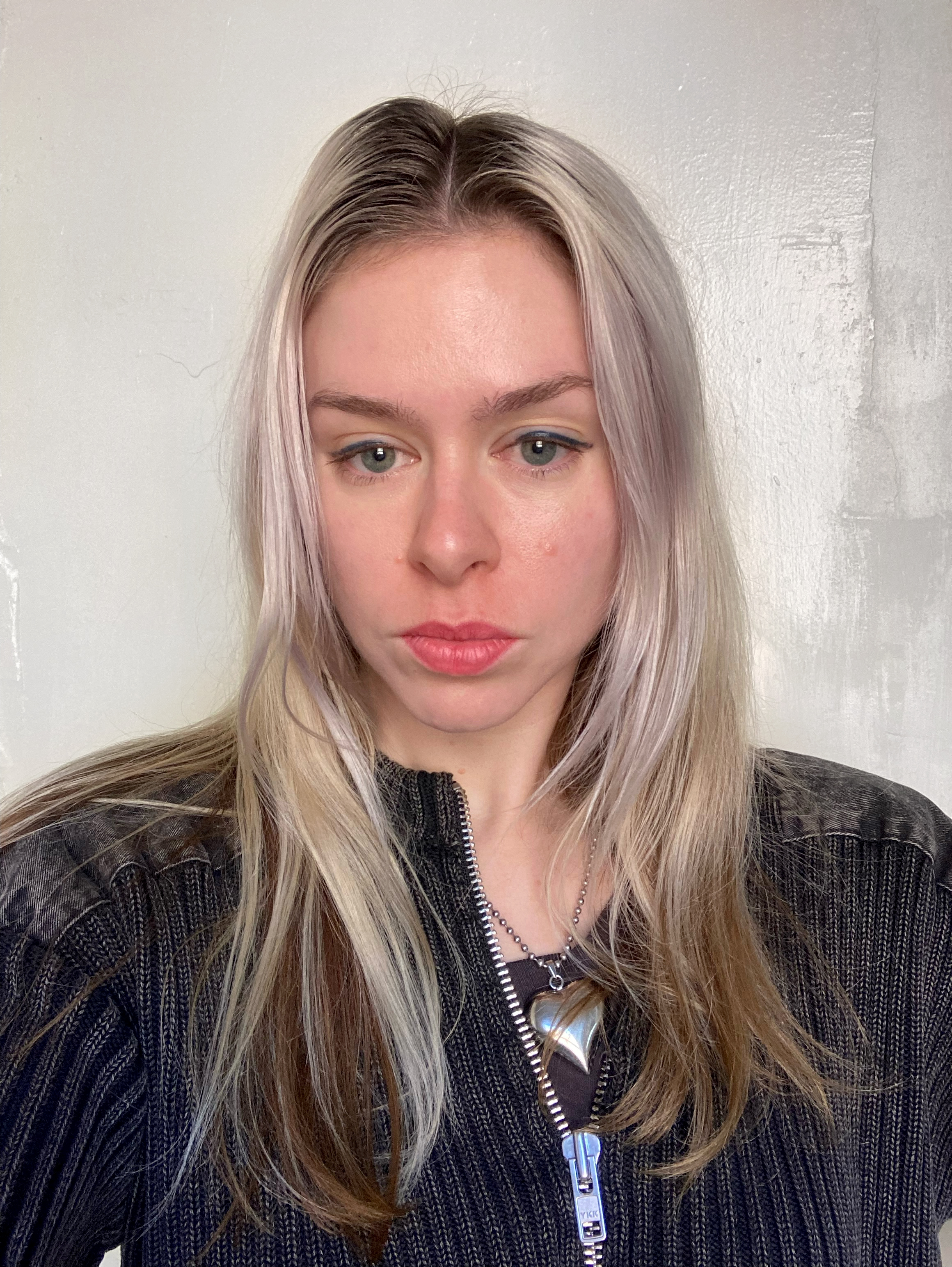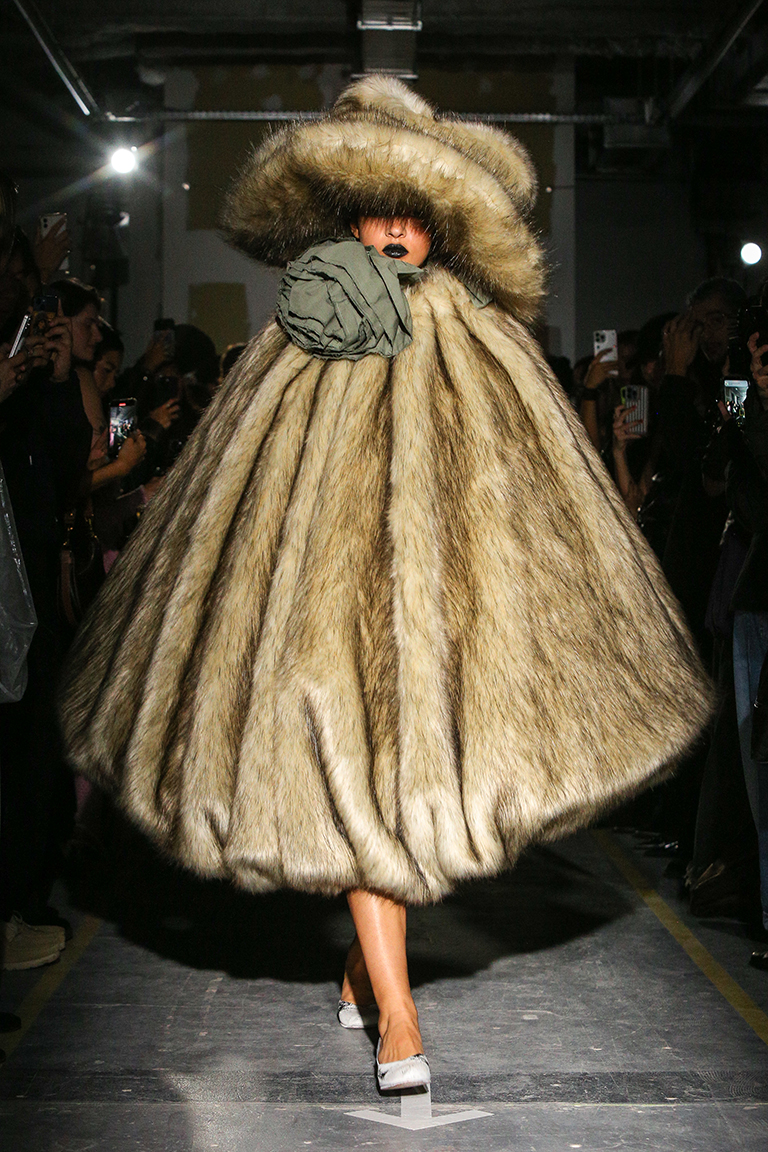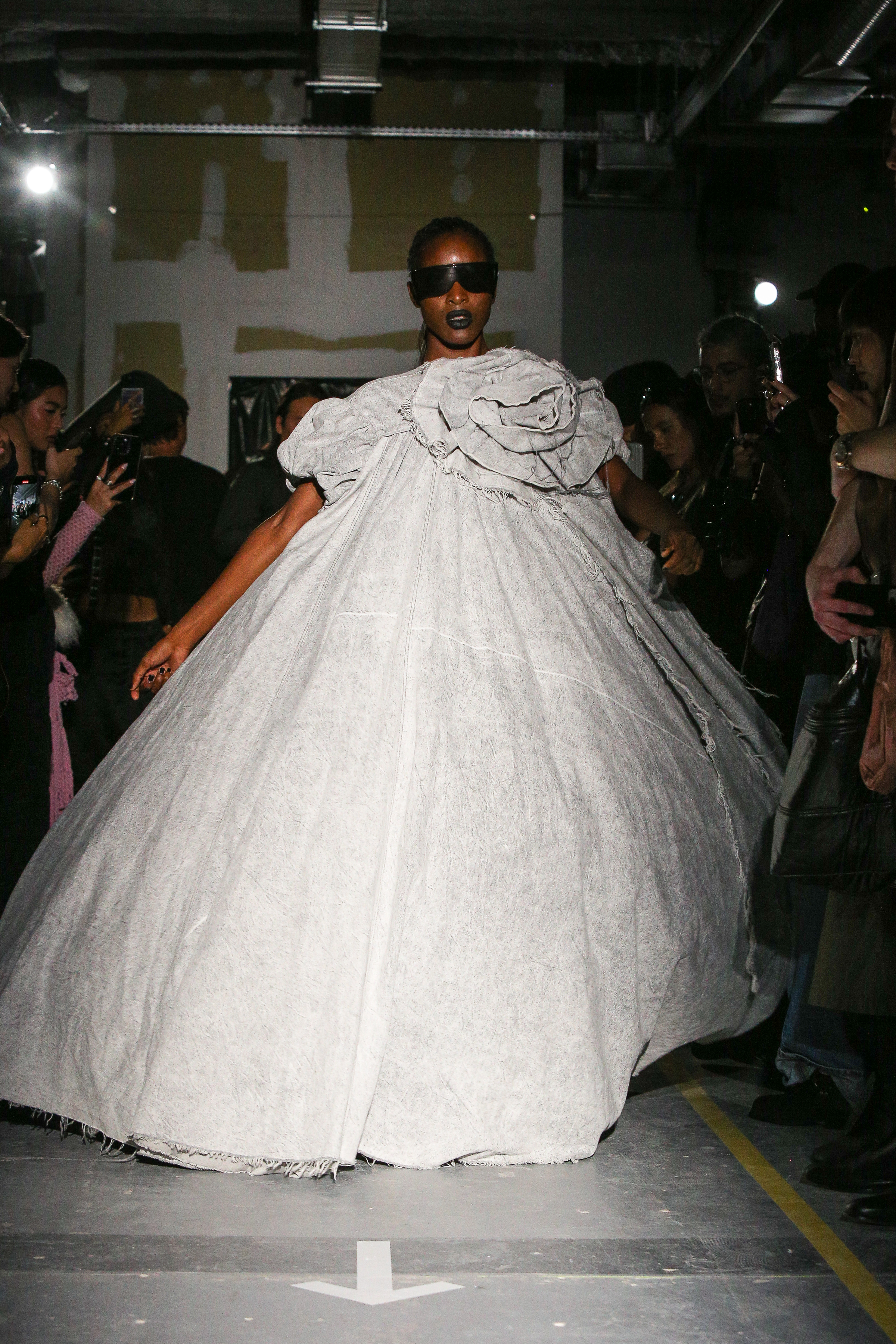Bryn Taubensee graduated from Indiana University’s Eskenazi School of Art, Architecture + Design in 2014 with a B.A. in Fashion Design and a B.F.A. in Studio Art (sculpture). After graduating, she moved to New York City, and in 2016, she co-founded the ready-to-wear brand Vaquera with her friend and collaborator Patric DiCaprio. Deemed "anti-fashion" in its early days for its brash, often difficult to wear looks, Vaquera has since grown into one of the most acclaimed young brands in the fashion industry, receives consistent accolades from top critics and editors, and regularly shows at New York and Paris Fashion Weeks.
Taubensee gave current Fashion Design major Noah Handy this preview of the insights she'll be sharing during her appearance in the Eskenazi School's Bill Blass Speaker Series Monday, November 27. The talk starts at 5:30 p.m. in the Mies van der Rohe Building classroom, 321 N. Eagleson Avenue, on the IU-Bloomington campus.
Noah Handy: Can you point to anything that the Eskenazi School -- or IU in general -- has done in particular to help you get to where you are at now? So, any specific teachers, classes/curriculum, or overall lessons that you have learned that still impact you today?
Bryn Taubensee: I started off as a sculpture major at IU (I ended up getting degrees in sculpture and fashion). I decided I wanted to take fashion classes when I was a fifth year senior! Maybe things are different now, but at the time you could only take fashion classes if you were a fashion major. I wrote to the department for an exception, and Deb Christiansen and Kate Rowold allowed me to take classes. I am so grateful that they did, because I found out that I loved patterning, sewing, and making clothes. So I decided to get a fashion major too! Without them allowing me to take classes, I don't think I would be in fashion today. It's crazy to think how the little things in life can make such huge differences -- so I am so grateful to Deb, Kate, and IU for taking the extra effort to listen to my request and let me take classes.
NH: How would you describe your growth within fashion from your beginning to now?
BT: Wow, so much growth all the time, every day basically. But most of all we started this brand more for fun and self-expression than as a business. It's been a long road to work basically backwards and actually turn it into a functioning company. It's been a challenge to maintain the passion that we had when we were driven by more rebellious ideals, when we weren't accepted into the industry but were speaking more about it as outsiders. So now it's about striking a balance between practical things like making sales, getting clothing to stores on time, making sure items are selling on our webstore, etc. -- while still feeling happy, fulfilled creatively, and that we're making a statement with our designs.
NH: What are you working on right now (if you can speak on it)? Is there anything we should be looking for specifically? A message/idea/or reference we should be wondering about before we indulge in your next body of work?
BT: We're starting to design next season (FW24) but I can't reveal much more than that!
NH: Is there any advice that you would have for any students here in the Eskenazi school who may have a similar path or who aspire to do similar things as you?
BT: Always do what you love and think is cool rather than what you think other people want to see. If you're passionate, other people will see that, and they'll love what you're doing too. They should come to the talk for more advice ;)
NH: What is a learning experience that you have had (recently or in the past) that helped or humbled you to put things in perspective for you and your future? And why did it have that effect on you?
BT: A few days ago my business partners sat down and discussed how we could improve the way we worked together in various ways. One thing they told me was that I have trouble admitting I'm wrong. You have to let go of your ego when you're working with a team. We all slip up from time to time -- it's hard to admit you aren't always right and that your ideas aren't the best. But it's really necessary in working with close collaborators, or honestly, it's just a really necessary thing to remember in life. It's a relief to know you won't always be right because you can trust in the world and other people more.
NH: When you are not in the studio or working on all things fashion, what do you like to do? What hobbies interest you, help in the creative process, or best help you to relax in the present?
BT: I love biking and I love traveling. Both are great ways for me to disconnect from thinking about work and just focus on the present and what's around me. I can get really in my head while working, and it's important to focus on yourself and enjoy life so you can be your happiest and most inspired at work.
NH: In your interview with Dismagazine, you mentioned that social media and news outlets have made information so easily digestible that it makes it hard for people to be openly creative without reviving simple and negative comments. What ways have you challenged that idea and what would you say to those who are afraid to navigate through all the thoughts and opinions?
BT: Don't be afraid to put yourself out there -- the haters are a good sign that you're doing something interesting. A neutral reaction is the worst and means you aren't reaching anyone. We actually love our haters -- it's exciting that they're so moved, even if it is in a negative way!
NH: What is a part of your current work that you currently don’t engage in as much that you wish to develop? A skill, habit, talent that you may be interested in trying that you have not tried as much yet.
BT: Hmm can't think of one at the moment ... we kinda do everything already!
NH: How would you react to anyone saying that what you are doing is anti-fashion? Do you think this is a relevant criticism?
BT: We always considered ourselves very PRO fashion. We loved fashion for the creativity and self-expression, for causing a stir, prompting questions, and telling a story. Since our beginning, we were inspired to rebel against an over-commercialized industry that was driven by sales and mass-production, which in my mind is actually very "anti-fashion."
NH: How has your experience at Vaquera helped you to look at life beyond fashion? Things like relationship building, creating pieces from scratch, outsourcing, mentorship, professionalism...
BT: One of my biggest takeaways has been how much we need other people that we love and trust in our lives. In a business like this, it's just impossible to do it alone - there's too many responsibilities and different things that need to happen. It's essential to find other people to do it with. And in life, it's the same. You can't do it alone, and you need to find good, reliable people that support and inspire you along the way. And on the flip side, you need to be open enough to really let them in, to accept that sometimes they know better than you, and to support them when they need you too.
NH: What is the best way to keep up with Bryn Taubensee? What is next for you (this can include Vaquera, or be Bryn-specific!).
BT: Our instagram is vaquera.nyc! We are planning our move to Paris next year or in 2025!




